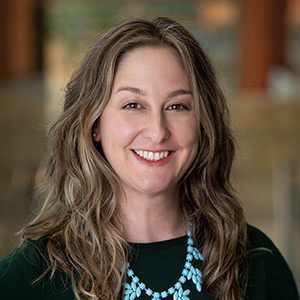The research community at the Institute includes visiting scholars, consultants, economists, research analysts, and research assistants. These scholars bring a diversity of backgrounds, interests, and expertise to research that deepens our understanding of economic opportunity and inclusion as well as policies that work to improve both.
When a field of practice treats the term “research” as pejorative—too slow, too inaccessible, too expensive—you know you have a problem. When that field is health care delivery, you have a public health problem.
“There’s strong evidence that it takes about 17 years for clinical research to make it to the bedside, and only about 14 percent of what is known makes it at all,” said Institute advisor and sociologist Timothy Beebe, citing with ease some of the uneasy statistics that have made health care the focus of his career.
Self-described as a “survey methodologist with quantitative skills and a short attention span,” Beebe spent 13 years at Mayo Clinic in Rochester, Minnesota, learning how to embed researchers in health care and systematize innovation to bridge that gap. The infrastructure he worked to help build is representative of a field of study now called “learning health system sciences.”
“We as academics have studied our health care delivery system, but we’ve studied it from afar. It’s called the study of health care delivery,” said Beebe. “The ‘learning health system sciences’ perspective is the study in health care delivery.”
Beebe transitioned to the University of Minnesota in 2016 so that his lessons learned at Mayo could improve outcomes for more patients across Minnesota.
“We want to treat the whole state as a learning health system—constantly learning, constantly sharing information, overcoming some of the competitive barriers,” Beebe said. “That’s where the ‘public health’ comes in—really taking a population health perspective.”
For example, early in the pandemic, scholars from the University’s fledgling Center for Learning Health System Sciences assembled a team that reviewed emerging literature on blood clots in COVID-19 patients. The team then delivered simple computer alerts in real time reflecting the newest clinical practice guidelines for doctors treating COVID patients. The intervention resulted in fewer intensive care unit admissions and lower mortality for patients receiving care in line with updated guidance.
“It’s a different way of doing research that maps onto the pace of the practice, and really, it’s almost like a dating service,” said Beebe. “We want to connect health care providers and administrators with researchers, so they are situated to co-create knowledge and bring it to the bedside not in 17 years, but in 17 months, or 17 weeks, or 17 days.”






